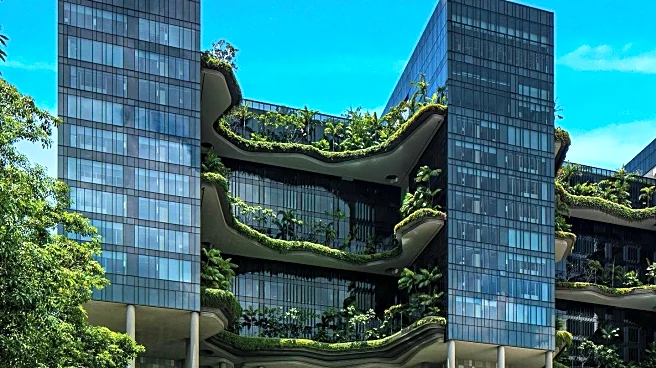What's Happening?
A recent analysis in the hospitality industry highlights the need for transformative practices to address systemic challenges in sustainability. The industry has been focusing on low-leverage intervention
points, such as parameters and material stocks, while higher-leverage interventions like information structure, rules, goals, and paradigms remain largely unaddressed. This approach has led to repetitive patterns without systemic transformation. The analysis suggests that addressing higher-leverage points could prevent hotels from becoming stranded assets and promote sustainable growth. It calls for redefining goals beyond traditional metrics like RevPAR to include ecosystem restoration and questioning paradigms that assume endless growth compatibility with finite systems.
Why It's Important?
The hospitality industry's focus on low-leverage points has limited its ability to achieve meaningful sustainability outcomes. By addressing higher-leverage interventions, the industry could redefine its economic model to prioritize sustainability and ecosystem restoration. This shift is crucial as the industry faces increasing pressure to reduce its environmental impact and adapt to changing consumer expectations. The analysis underscores the need for systemic change to avoid the pitfalls of traditional growth paradigms and ensure long-term viability.
Beyond the Headlines
The call for regenerative hospitality reflects broader trends in tourism and sustainability, emphasizing the interconnectedness of people, culture, nature, and heritage. This approach challenges traditional views of tourism as a value-extracting industry and promotes a holistic view of hospitality as part of a living system. The analysis draws on concepts like assemblages to highlight the importance of considering multiple paradigms and balancing growth with ecological limits.









